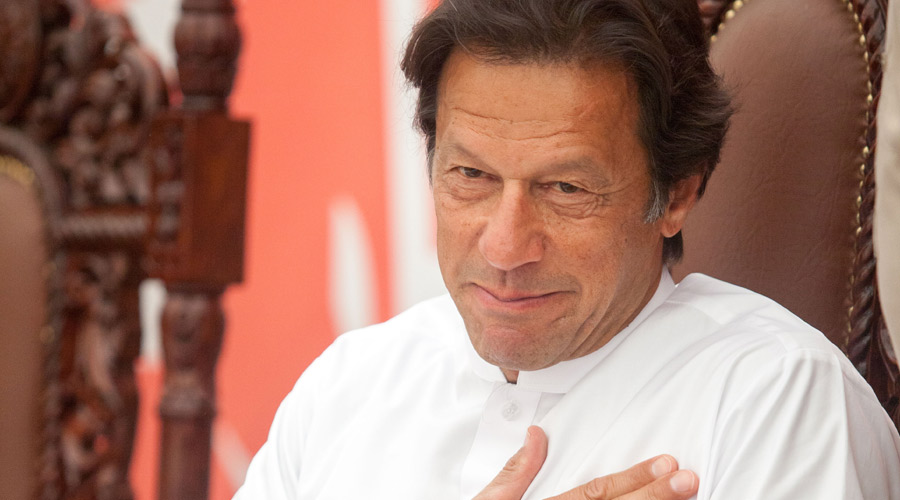Pakistan National Assembly's crucial session on a no-trust motion against embattled Prime Minister Imran Khan was adjourned on Friday without tabling of the resolution, amid vociferous protests from opposition lawmakers.
National Assembly Speaker Asad Qaiser said that the session was adjourned till 4pm on March 28 due to the demise of Pakistan Tehreek-e-Insaf lawmaker Khayal Zaman.
According to Pakistan's Parliamentary conventions, the first sitting after the death of a lawmaker is limited to the prayers for the departed soul and tributes from fellow lawmakers.
Several prominent opposition members, including Leader of the Opposition in National Assembly Shehbaz Sharif, Pakistan Peoples' Party Chairman Bilawal Bhutto-Zardari and co-chair Asif Ali Zardari were in the Parliament House on Friday to participate in the much-anticipated session.
Opposition leaders protested against the adjournment of the session.
The National Assembly Secretariat had issued a 15-point Orders of the Day' for the NA session, which included the no-confidence resolution.
Pakistan has been on the edge since Opposition parties on March 8 submitted a no-confidence motion before the National Assembly Secretariat, alleging that the Pakistan Tehreek-e-Insaaf (PTI) government led by Prime Minister Khan was responsible for the economic crisis and the spiralling inflation in the country.
Khan, 69, is heading a coalition government and he can be removed if some of the partners decide to switch sides.
He is facing a rebellion by his about two dozen lawmakers and allied parties which are also reluctant to pledge support to him.
Both Khan and his ministers are trying to give the impression that everything was fine and he would come out victorious out of the trial.
No Pakistani prime minister has ever completed a full five-year term in office.
Ringing the alarm bells, Interior Minister Sheikh Rashid said on Thursday that early elections can be held in the country to end the current political uncertainty due to the no-trust motion against Prime Minister Khan. The next general election is due by late 2023.
On Wednesday, Khan had said that he will not resign at any cost and claimed to have a "surprise" up his sleeve for the opposition, even as at least three allies of the ruling coalition have indicated to vote against his government during the no-trust motion.
Both government and opposition politicians have been working overtime to tilt the balance in their favour. On Thursday, Pakistan's Chief Justice Umar Ata Bandial said that discarding lawmakers' vote during the no-confidence motion against the prime minister would be "insulting" and a member of the National Assembly cannot be barred from voting.
Chief Justice Bandial is heading a five-member larger bench of the apex court to hear a petition by the government to seek guidance from the Supreme Court about the allowing a dissident to vote against party policy and the length of disqualification for going against the party line while voting in the parliament.
The legal battle is part of the political war going between Prime Minister Khan and opposition parties.
The PTI has 155 members in the 342-member National Assembly and needs at least 172 lawmakers on its side to remain in the government.
On Thursday, Prime Minister Khan invited the nation to participate in the ruling party's March 27 power show at Islamabad's Parade Ground, calling on the people to join him in "standing against evil".











